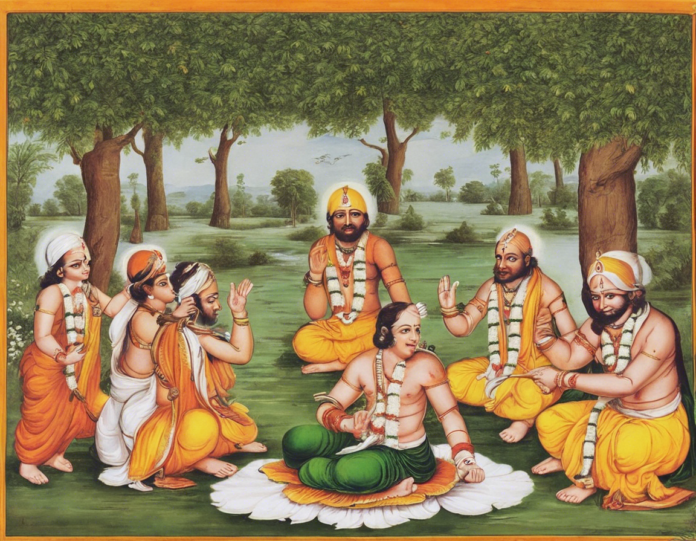Tulsidas Ka Jivan Parichay: A Brief Biography
Introduction
Sant Tulsidas, a prominent figure in Indian history, was a great saint, poet, and philosopher. His contributions to literature, particularly in the form of his epic poem "Ramcharitmanas," have made him a revered figure in Indian culture. In this article, we will delve into the life and works of Tulsidas, shedding light on his early days, the obstacles he faced, and his enduring legacy.
Early Life and Education
Tulsidas, originally named Rambola, was born in Rajpur, India, in 1532. From a young age, he exhibited a keen interest in spirituality and literature. Despite facing early hardships and losing his parents, Tulsidas pursued education under the guidance of Narharidas. His dedication to learning the scriptures and devotion to Lord Ram were evident even in his youth.
Encounter with Lord Ram
One of the most impactful events in Tulsidas's life was his encounter with Lord Ram. According to popular belief, Lord Ram appeared before Tulsidas in the form of a child and inspired him to compose the epic poem "Ramcharitmanas." This divine intervention marked a turning point in Tulsidas's life and set him on a path of spiritual enlightenment.
Works and Contributions
Tulsidas's most renowned work, "Ramcharitmanas," is a retelling of the Ramayana in Awadhi language. This masterpiece not only narrates the life of Lord Ram but also imparts moral and spiritual teachings to its readers. The poetic beauty and profound wisdom embedded in "Ramcharitmanas" have earned Tulsidas a place among the greatest poets in Indian literature.
Apart from "Ramcharitmanas," Tulsidas also composed several other works, including "Vinaypatrika," "Dohavali," and "Kavitavali." His writings spanned various genres, from devotional poetry to philosophical treatises, showcasing his versatile literary talent.
Challenges and Opposition
Tulsidas's devotion to Lord Ram and his unorthodox approach to religion stirred controversy during his time. He faced opposition from traditional religious authorities who questioned his interpretations of scriptures and teachings. Despite these challenges, Tulsidas remained steadfast in his beliefs and continued to inspire generations with his writings.
Legacy and Influence
Sant Tulsidas's legacy continues to resonate with millions of people around the world. His teachings on devotion, righteousness, and compassion have left an indelible mark on Indian spiritual and cultural landscape. Through his writings, Tulsidas bridged the gap between the common people and religious texts, making the teachings of the Ramayana accessible to all.
FAQs about Tulsidas
Q1: When was Tulsidas born?
A: Tulsidas was born in 1532 in Rajpur, India.
Q2: What is Tulsidas's most famous work?
A: Tulsidas's most famous work is "Ramcharitmanas," an epic poem retelling the story of Lord Ram.
Q3: What language did Tulsidas write in?
A: Tulsidas wrote in Awadhi, a dialect of Hindi.
Q4: What inspired Tulsidas to compose "Ramcharitmanas"?
A: Tulsidas was inspired by a divine intervention where Lord Ram appeared before him and encouraged him to write "Ramcharitmanas."
Q5: What is Tulsidas's legacy?
A: Tulsidas's legacy includes his profound impact on Indian literature, spirituality, and culture through his writings and teachings.
In conclusion, Tulsidas's life and works serve as a source of inspiration for people seeking spiritual enrichment and wisdom. His devotion to Lord Ram, coupled with his literary prowess, has immortalized him as a revered saint and poet in Indian history. Sant Tulsidas's legacy continues to endure, reminding us of the power of faith, love, and devotion in life.


Recent comments